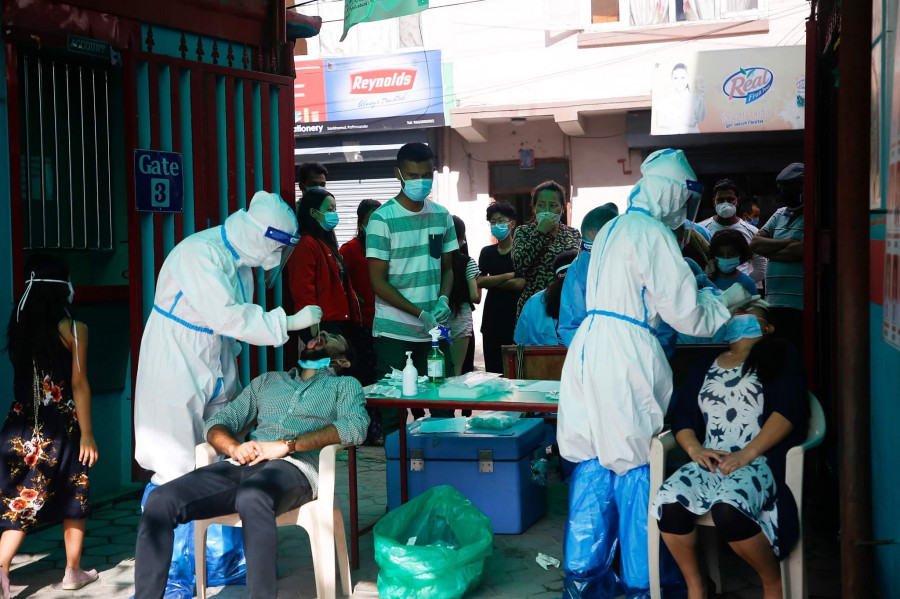Health
Health Ministry says it expects a second wave of Covid-19 infections in three weeks
Experts urge officials to prepare for worst-case scenarios by equipping healthcare staffers and setting up quarantine and isolation facilities.
Arjun Poudel
A resurgence of coronavirus is expected to start in the country in three weeks, the Ministry of Health and Population said as virus containment measures are relaxed and protests flare up across the country.
A second wave of infections is inevitable, as most people have stopped following safety measures properly, officials said.
“We expect the number of new cases to rise after three weeks,” Dr Roshan Pokhrel, chief specialist at the Health Ministry, told the Post. “We are urging people to follow safety measures, as the risk of infection has not subsided.”
Political gatherings and protests are being organised almost every following the dissolution of the House of Representatives. Most businesses have resumed like in the pre-pandemic days and people are not following safety measures.
“Everything has become like normal, there are no restrictions in place, crowds are growing and people are not following safety measures,” Dr Gunanidhi Sharma, an official at the ministry of Health and Population, told the Post. “We know that a second wave will come, but we are not certain about its severity.”
The ministry had deployed its senior officials to all seven provinces to draw their attention to the looming risks of a second wave.
Doctors say if the number of new infections shoots up again, it can be termed as a second wave.
Public health experts said that authorities should start preparing to deal with possible scenarios of a second wave of infections. They said that even if the government has its limitations, it should do things that are possible to do right away (for example: arrange hospital beds, set up quarantines and isolation facilities, increase tests, conduct contact tracing, arrange oxygen supply systems, and others.
“We are facing a very tough time,” Dr Mingmar Gelgen Sherpa, former director general at the Department of Health Services, told the Post. “Apart from the risk of a second wave, a new variant of the virus is also doing the rounds. We should be prepared to handle the threats. Authorities should do whatever possible.”
Efforts such as procuring sufficient safety gear, including personal protective equipment for health workers, increasing hospital beds, arranging oxygen supply systems, and managing quarantine and isolation facilities should be prioritised, according to the doctors. They said that preparation should be made in the districts as well, as the second wave can be severe there.
“A second wave is imminent, but it might be less severe than the first wave in Kathmandu Valley,” Dr Prabhat Adhikari, infectious disease and critical care expert, told the Post. “A lot of people in the Kathmandu Valley might have already been infected.”
So far, over 120,000 people of the Kathmandu Valley have been infected with coronavirus. Adhikari said that usually, five to 10 times more people in the community are infected than the official numbers suggest as a large number of people don’t get tested. Those already infected may not get infected immediately, he added.
Many countries around the globe, including the United Kingdom and the United States, have been hit by a second wave of infections. Even after the launch of vaccination against coronavirus, some countries in Europe have enforced new restrictions to slow down the spread of infections.
Dr Kiran Pandey, a consultant physician, said that he is sceptical about the second wave as there is no reliable data to say that the first wave has been completed and infection rates have declined after peaking.
“But the number of new cases might go up in the coming days as most restrictions have been lifted and people have stopped following safety measures,” Pandey told the Post.




 13.12°C Kathmandu
13.12°C Kathmandu















